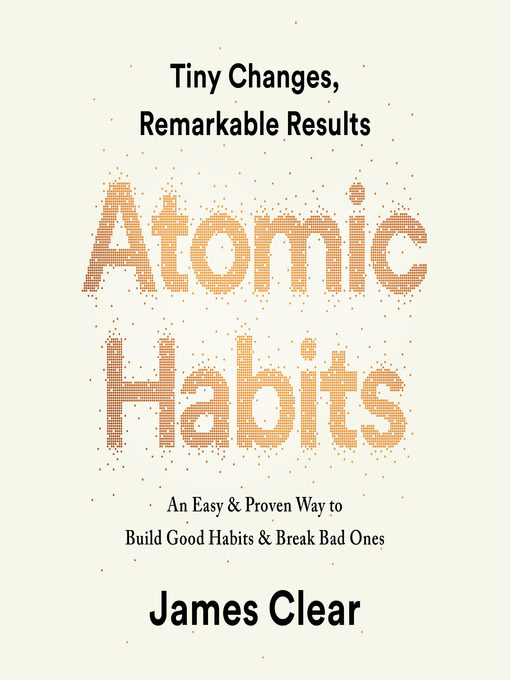Book Recommendation: Atomic Habits
Did you brush your teeth this morning? I don’t think I’m going too far out on a limb by guessing the answer is yes. I’m also guessing that you didn’t have to schedule a reminder for yourself in your calendar, and you didn’t procrastinate or muster up your willpower to get started. You probably did it without thinking about it at all, and maybe even let your mind wander or think about other things while you were doing it.
Depending on what time you’re reading this, you’ve probably also performed several other habits today; experts estimate that we spend about 40% of our time behaving out of habit. Quite simply, habits shape our lives and the results we produce—for better or for worse. The crucial question is: how many of our habits are the products of careful thought and intention, versus unproductive habits that have arisen without our even knowing?
Brushing your teeth regularly is a high ROI activity; it returns solid health and even social benefits and costs almost nothing to do—because it’s a habit. On the flip side, how many bad habits do you have, those that also cost almost nothing to do, but yield a negative return?
There’s a pretty simple equation here: you can become happier, healthier and more productive if you develop more good habits or kick bad ones.
We all know this, which is why we all strive to we all make New Year’s resolutions, and we all vow that “this time it will be different.” And most of us fail repeatedly.
Unfortunately, when we fail to get control of a habit, we tend to view it as a character flaw, some sort of deficiency in grit or willpower that keeps us from becoming the person we want to be.
Willpower may be part of it, but context matters far more. There are so many hidden or unconscious influences on our habits that willpower is simply outgunned, which is why we run out of it so quickly in most cases. The antidote is knowledge, and that’s exactly what James Clear provides in this excellent and important book: Atomic Habits.
Every habit, according to Clear (and supported by voluminous research), goes through four steps, or phases: our brains respond to a cue, which kicks in a craving and leads to a response that generates a reward.[1] At each step, there are things you can do, to make the habit more or less likely, and that establishes the framework for the book. There are four sections, each dealing with one phase of the habit, address ways to establish good habits and quit bad habits:
| Good habits | Bad habits | |
| Cue | Make it obvious | Make it invisible |
| Craving | Make it attractive | Make it unattractive |
| Response | Make it easy | Make it difficult |
| Reward | Make it satisfying | Make it unsatisfying |
In twenty fascinating and informative chapters, Clear lays out probably the most comprehensive and practical program for good habits that I’ve read. Regardless of how much you already know or do, there is something for everyone in here. In my own case, before reading Atomic Habits, I’d already been making good progress on establishing some new productive habits, but I also gleaned and have started applying some excellent ideas, for example habit stacking (chapter 5) and temptation bundling (chapter 8).
There’s so much more useful information in Atomic Habits than I can include in a short post, so give it my strongest possible recommendation. As Clear says, time magnifies the margin between success and failure, which is why good habits put time on your side and bad habits make time your enemy. So I suggest you waste no time and start reading this book immediately.
[1] This is one more step than Charles Duhigg writes about in his book, The Power of Habit, which I also highly recommend, but if you are going to read only one, I suggest Atomic Habits.



